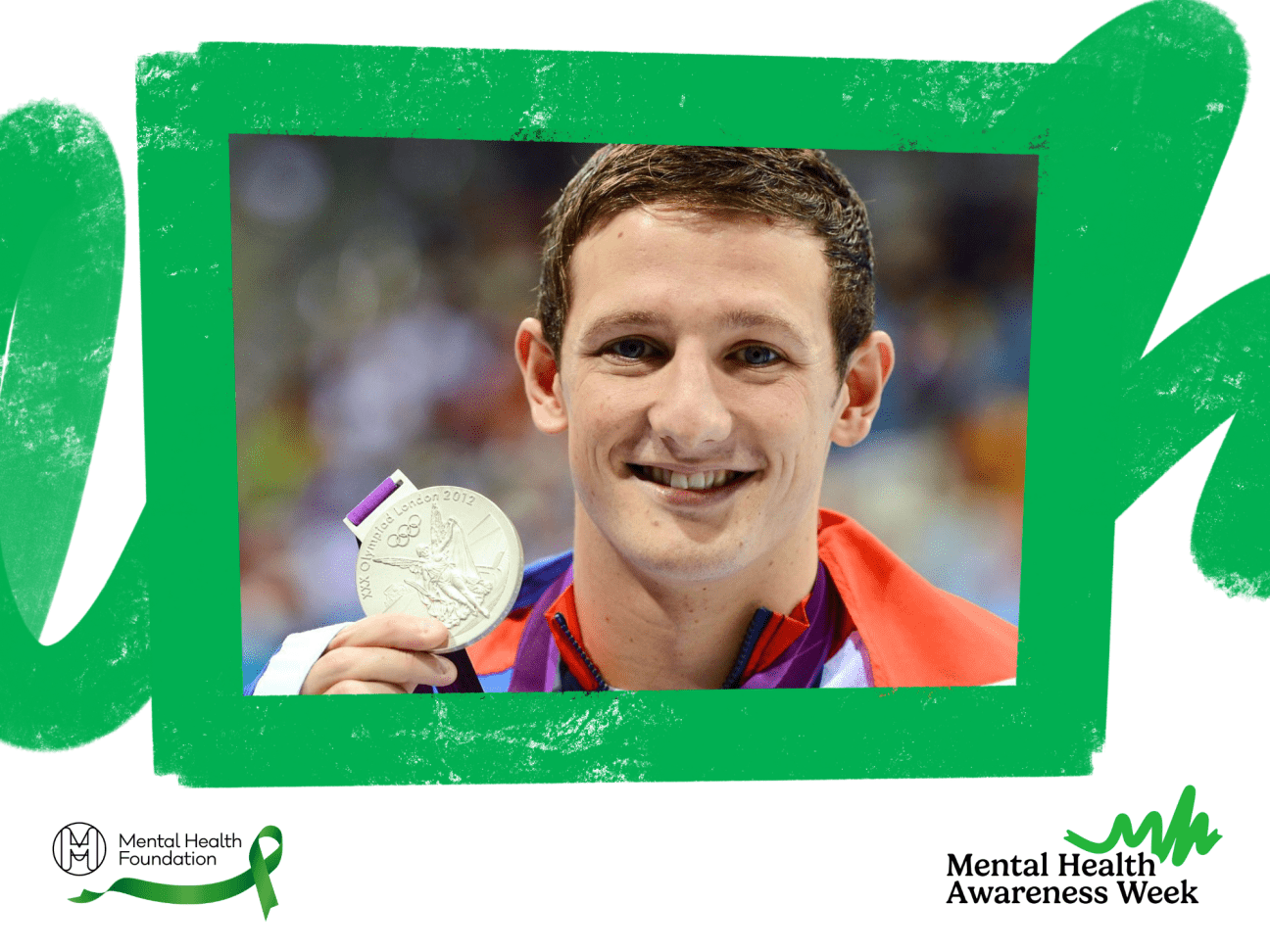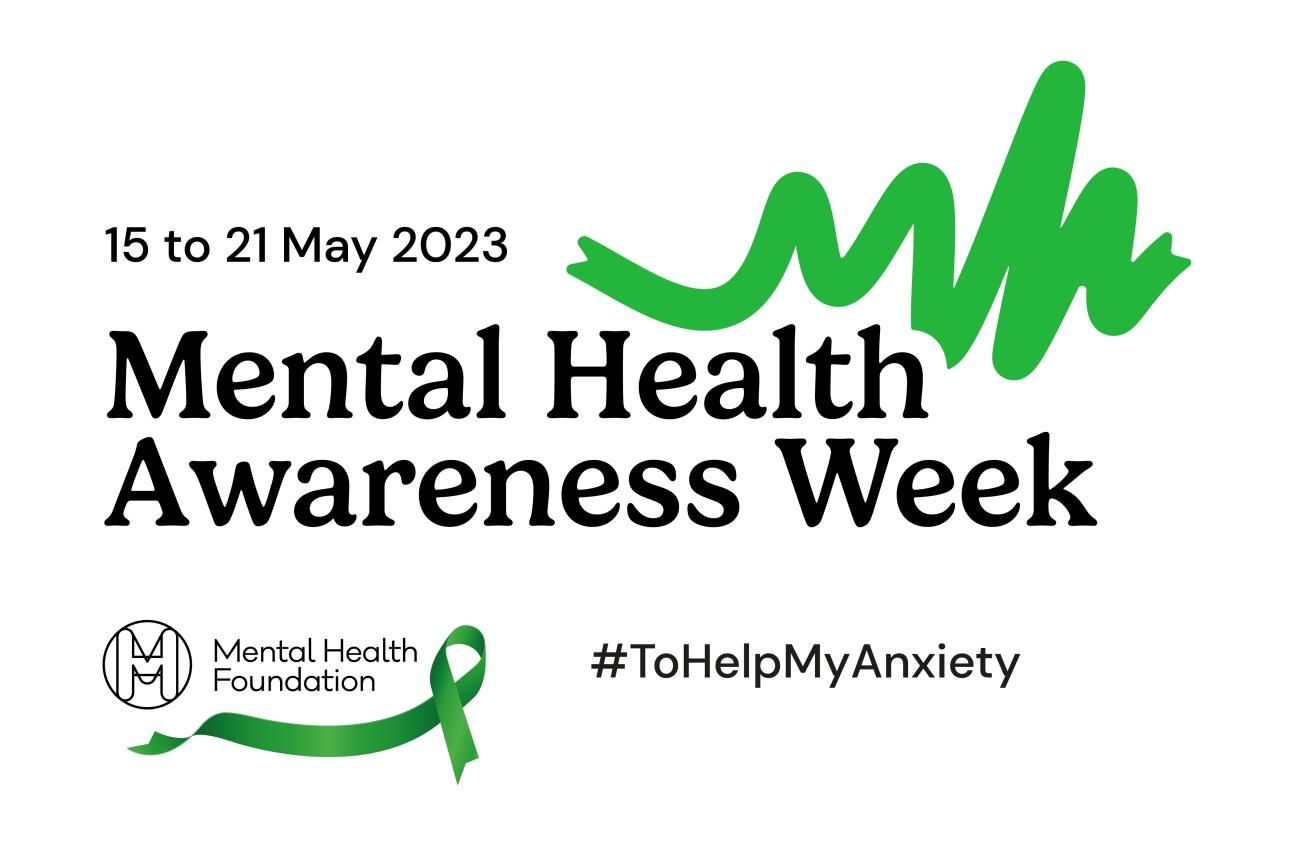As a supporter of Mental Health Awareness Week, Olympic medallist Michael Jamieson writes about how his own mental health struggles inspired the ethos behind his Swim Academy.
The first time I was aware of my own mental health, I was about 19. I had already been living away from home for three years, but I wasn’t yet a funded athlete, and I was putting myself under immense pressure to become a pro swimmer. I’d have really intense periods of high anxiety and stress followed by days of really low mood where I didn’t want to be around anyone. However, I didn’t have enough understanding of my mental health, what triggered me, what symptoms I should be aware of or how to manage them.
This continued throughout my career as my whole identity was wrapped up in being an athlete. I was determined and completely focused on my performance, constantly pushing to be faster, fitter, stronger. If a training session didn’t go as planned, I’d feel like a failure, and it would really impact my emotions and well-being.
After the elation of winning a silver medal at the London 2012 Olympics, I hoped this was the start of my journey but, because of difficulties with my mental health, it was actually the beginning of the end. The pressure I was putting on myself was unsustainable, and it was really taking its toll on my mental health. I couldn’t stay healthy, psychologically, and there was no way I’d be able to perform to my best ability.

By the time it came to trials for Rio 2016, I knew that I wasn’t mentally fit enough, but I pushed myself to compete and be beaten so I would have to walk away from competitive sport. I didn’t want to retire as I was only 27 and could have still had several more years at the highest level.
While I was struggling with my mental health, the anxiety ahead of big competitions and the severe lows when I thought training wasn’t going well, I didn’t really speak to anyone about how I was feeling or the effect it was having on me. I oscillated between the idea that all pro athletes had the same experiences and there wasn’t any point making a big deal about it to thinking I was all alone and no one else would understand.
That’s one of the reasons why I’m keen to support Mental Health Awareness Week. The theme this year is anxiety, something that so many people experience but might not know how to deal with. The Mental Health Foundation is encouraging people to speak out about their experiences of anxiety and the things that help, and they have also published evidence-backed guidance to help people self-manage feelings of anxiety and prevent those feelings from worsening or becoming a more serious mental health problem.
I wish I had more self-awareness about my mental health when I was younger and had the tools to manage feelings of anxiety, stress, or low mood in a healthy way. That’s why when developing the programme for my Swim Academy, it was so important that there was a balance between supporting mental health and well-being as well as swimming performance.
We have more than 2000 pupils taking swimming classes with us every week across central Scotland. The instructors are trained in Mental Health First Aid, and pupils are rewarded for demonstrating skills in sportsmanship, encouragement, compassion, and well-being in addition to their swimming achievements. We have small classes so the instructors can really get to know the pupils and we create a really supportive and nurturing environment.
For me, I’m now in a much better place with my mental health. Exercise is the number one thing for me for good mental health. If I’m beginning to feel overwhelmed by feelings of anxiety, low mood, or like I’m losing control, I’ll exercise or perhaps do a guided meditation with an app like Headspace or The Sound Bath.
A couple of times a year, I like to get away and travel to a new place – which I also find really good for my mental health. I’ve been to yoga and meditation retreats in amazing places like Guatemala and India. I’m hoping to go to Vietnam this year.
What I’ve learned is that it’s so important to talk about how you feel, particularly if you’re struggling. It’s not easy to challenge your thoughts if you’re in a bad place as you don’t want to deal with it, but you have to. You need to build your self-awareness, own your feelings and understand your triggers and what you can do about them.
I’d encourage everyone to take part in Mental Health Awareness Week. Get involved in online conversations with the hashtags #ToHelpMyAnxiety and #MentalHealthAwarenessWeek, and use the Mental Health Foundation's tips on how to manage anxiety or find further support if you need it.
More information
For more information on Michael Jamieson’s Swim Academy, visit the website.
This story was shared in the Scottish Sun on Monday 15 May 2023, to mark the first day of Mental Health Awareness Week.
Share what you do #ToHelpMyAnxiety

